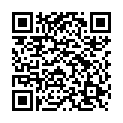|
|
|
| Module code: IBB-410 |
|
|
4VF (4 hours per week) |
|
5 |
| Semester: 4 |
| Mandatory course: yes |
Language of instruction:
English |
Assessment:
Project
[updated 26.01.2020]
|
IBB-410 (P420-0239) International Business, Bachelor, ASPO 01.10.2020
, semester 4, mandatory course
|
60 class hours (= 45 clock hours) over a 15-week period.
The total student study time is 150 hours (equivalent to 5 ECTS credits).
There are therefore 105 hours available for class preparation and follow-up work and exam preparation.
|
Recommended prerequisites (modules):
None.
|
Recommended as prerequisite for:
|
Module coordinator:
Prof. Dr. Petra Garnjost |
Lecturer:
Prof. Dr. Kerstin Heuwinkel
Prof. Dr. Stefanie Jensen
[updated 06.03.2020]
|
Learning outcomes:
After successfully completing this module, students will be able:
- to understand the specifics of national cultures with regards to history, traditions, communication,
- to explain and apply central concepts of cultural theory,
- to provide an overview and explain typical management and leadership styles of selected cultures,
- to understand different types of organizational culture,
- to identify and analyze reasons for misunderstandings between members of different cultures,
- to organize group work in a multicultural team,
- to identify and solve conflicts in teams,
- to improve their empathy, communication skills,
- to show respect for others, compromise, and tolerance.
- to development of confidence in themselves and trust in other people.
- to write and communicate about cultural matters.
[updated 06.03.2020]
|
Module content:
1. Introduction
a) Understanding Culture
b) Concepts of Culture
c) Characteristics of Culture
d) Culture and Communication
2. Categorizing Cultures
a) Hall´s Cultural Factors
b) Hofstede’s Cultural Dimensions
c) Lewis Model of Cross-Cultural Communication
d) Trompenaars´ Model of National Cultural Differences
e) The Globe Survey on Culture and Leadership
3. Implications of Cultural Differences
a) Cultural Shock
b) Culture and Business
4. Managing Cultural Differences
a) Corporate Culture
b) Diversity Management
c) Working in Multicultural Teams
[updated 04.02.2020]
|
Teaching methods/Media:
Lectures, discussions, role-playing, case study work, group work, group presentations, written compositions
[updated 04.02.2020]
|
Recommended or required reading:
Always the latest edition:
_ Deresky, Global Management, New Jersey
_ Hofstede/Hofstede/Minkov, Cultures and Organizations, McGraw-Hill (USA)
_ Lewis, When Cultures Collide, Nicholas Brealey International, (USA)
_ Rothlauf, Interkulturelles Management, München/Wien
_ Rodrigues, C.; International Management: A Cultural Approach, Cincinnati (Ohio)
_ Schneider/Barsoux, Managing Across Cultures, Harlow (UK)
Additional academic publications on selected cultural topics will be provided.
[updated 04.02.2020]
|

